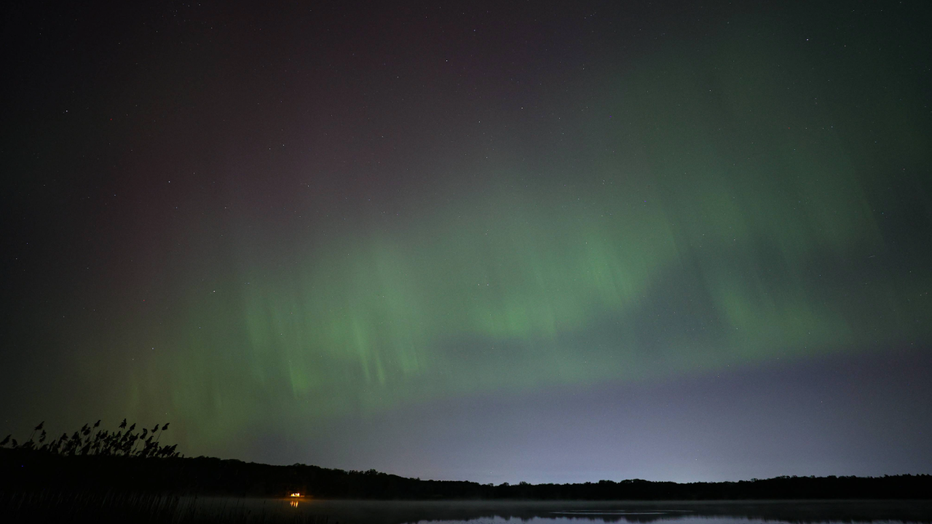Will the Northern Lights be visible tonight in NY, NJ?

Could solar storm bring Northern Lights to NYC?
An unusually strong solar storm hitting Earth could produce northern lights in the U.S. and potentially disrupt power and communications this weekend.
NEW YORK - A "severe" geomagnetic storm is forecast through Friday, and officials are warning that communication across the country could be hampered – and due to the severity of the storm, the aurora lights could be seen in parts of NY, NJ and CT.
AURORA BOREALIS TONIGHT: MAP l FORECAST
NOAA's Space Weather Prediction Center (SWPC) said that the severe (G4) geomagnetic storm could affect the power grid, as well as GPS and radio blackouts and impacts on satellites.
"Possible widespread voltage control problems and some protective systems may mistakenly trip out key assets from the power grid," the SWPC said on Wednesday.

Northern Lights (Aurora Borealis), also known as aurora, colorful lights shift, illuminate the sky in Rochester, New York, United States on May 11, 2024. (Photo by Lokman Vural Elibol/Anadolu via Getty Images)
The SWPC also added that systems might experience surface charging and increased drag on low-Earth orbit satellites, and tracking and orientation problems may occur on various spacecraft.
"Satellite navigation (GPS) degraded or inoperable for hours," the SWPC warned. " Radio – HF (high frequency) radio propagation sporadic or blacked out."
Map: Where to see the Northern Lights?

The aurora forecast for Thursday night. (NOAA's Space Weather Prediction Center)
The SWPC noted that a G4 or greater was predicted through Friday. The SWPC rates solar storms on a five-level scale, with five being the most extreme and rarest space weather conditions.
Aurora forecast
The Northern Lights are forecast to reach as far south as Northern California through Alabama.
The stronger geomagnetic storms are less common than G1 or G2 events.
However, Earth experienced near-global auroras in May, even as far south as Florida, when an "extreme" (G5) geomagnetic storm occurred because of two groups of extremely active sunspots.
NOAA Northern Lights
For more information, click HERE.
Will we see the Northern Lights?
If you missed the show, keep your eyes peeled on Friday night, as there's a chance for more celestial fireworks.
The solar storm is forecast to continue through Friday after impacts from a coronal mass ejection began arriving on Earth on Thursday.
FOX Weather helped contribute to this report.


